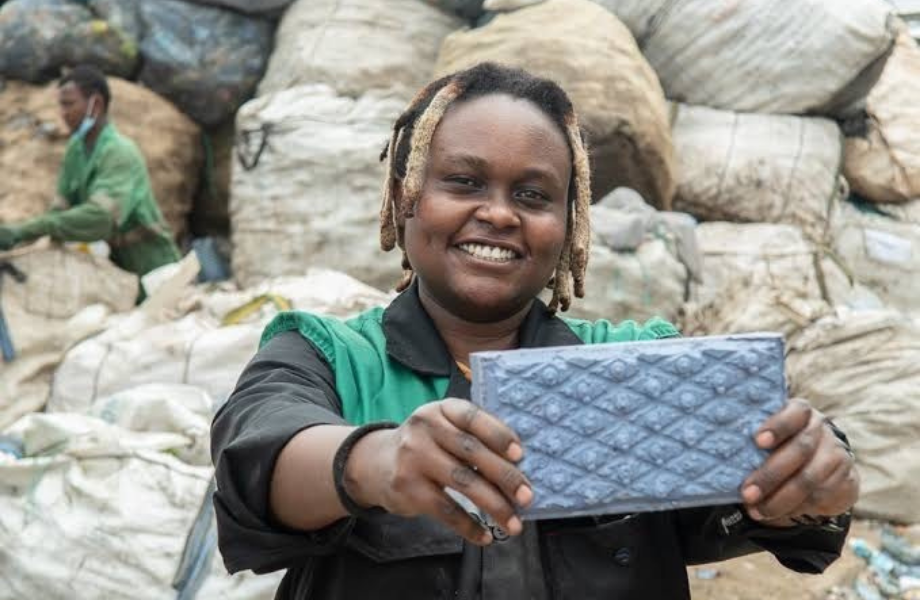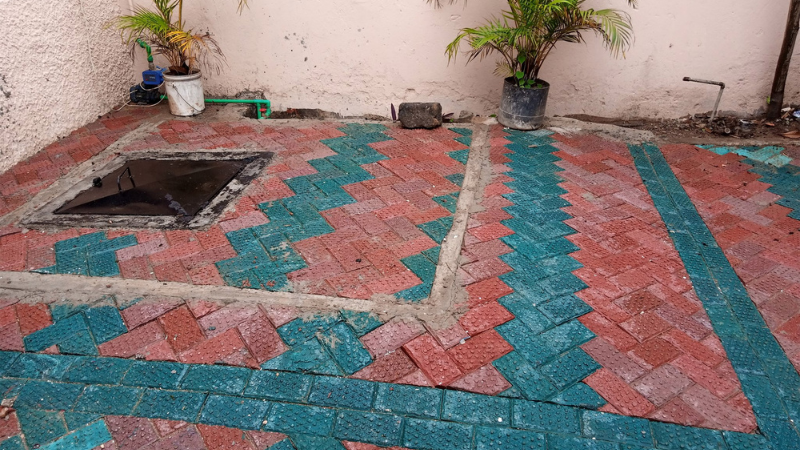Kenyan entrepreneur Nzambi Matee has created bricks from plastic waste five to seven times stronger than concrete
Taryn Paris – The Urban Developer

Engineer and entrepreneur Nzambi Matee was sick of seeing plastic waste polluting her corner of the world, so she set out to solve the problem.
“Plastic waste is not just a problem in Kenya, it’s a worldwide problem,” Matee says.
“Here in Nairobi we generate about 500 metric tonnes of plastic waste every day.”
She has built her business Gjenje Makers and her machines from the ground up to collect non-recyclable plastic, clean, shred, mix it with sand and extrude it at high temperatures, to then create durable pavers. The pavers are lightweight and strong, tested to hold twice the weight threshold of concrete blocks. Matee claims it is five to seven times stronger than concrete.
“So far we have recycled about 20 metric tonnes … we want to scale it to Kenya and Africa. Right now we are making paving blocks but we want to make building blocks.
“For me I was just tired of being on the sidelines seeing plastic … (it’s time) to act for the Earth.”
The Nairobi woman won the UN Environment Program’s Young Champion of the Earth 2020, and hopes the exposure will help give her a platform to take her business further.
Gjenje Makers has made waves internationally for its innovation and drive for a more sustainable building industry in Africa. The business has created 112 job opportunities for people in the community and is producing up to 1500 bricks a day. It’s not the first of its kind, but what it is achieving locally is impressive.

Plastic waste is a highly visible global problem. In 2016 the World Bank estimated that the world would go from producing 2 billion tonnes of plastic to 3.4 billion tonnes by 2050.
All plastic types had the worst recovery rates in Australia of around 15 per cent according to an Australian Bureau of Statistics report last year. Of 2.5 tonnes generated, 84 per cent is sent straight to landfill.
The report showed the construction industry was responsible for 16.8 per cent (12.7 million tonnes) of the country’s waste, and spent $2 billion on waste services.



